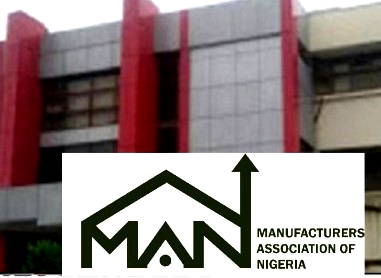
Keep up with the latest news and be part of our weekly giveaways and airtime sharing; follow our WhatsApp channel for more updates. Click to Follow us
Nigeria’s manufacturing sector faced significant challenges in 2024, resulting in over N1.4 trillion worth of unsold goods, according to Francis Meshioye, President of the Manufacturers Association of Nigeria (MAN). Meshioye attributed this issue to high inflation and reduced purchasing power of consumers, which led to a decline in demand for manufactured goods.
“Inflation in Nigeria reached an alarming 34.6% by November 2024, diminishing consumers’ purchasing power and causing a decline in demand for manufactured goods,” Meshioye said. “This inflationary burden also led to an accumulation of unsold inventory, which rose to N1.4 trillion across the manufacturing industries.”
Other challenges faced by the sector include:
– *Steep Depreciation of the Naira*: The floating of the exchange rate led to inflated costs of imported raw materials and machinery, worsening the already strained profitability of manufacturers.
– *Rising Interest Rates*: Interest rates reached unprecedented levels, climbing to 27.7% by November 2024, making it harder for manufacturers to access financing for expansion and modernization.
– *Escalating Electricity Tariffs*: Manufacturers were hit hard with a drastic rise in electricity tariffs, with rates increasing by over 250%, becoming one of the highest operating expenses for businesses in the sector.
– *Multiplicity of Taxes and Levies*: Manufacturers faced a heavy burden of multiple taxes and levies, further straining their profitability.
– *Militating Security Concerns*: Security concerns also impacted the sector’s performance, contributing to its declining contribution to Nigeria’s GDP.
As a result of these challenges, the manufacturing sector’s contribution to Nigeria’s GDP dropped significantly from 16.04% in Q4 2023 to 12.68% in Q2 2024, indicating a contraction in economic activity within the sector.
Meshioye noted that the combination of high operational costs, reduced consumer demand, and limited access to finance contributed majorly to this decline. “Consequently, it cannot be far-fetched that the sector’s struggles were reflected in its decreasing contribution to Nigeria’s GDP,” he added.
The MAN president emphasized the need for urgent intervention to address the challenges facing the manufacturing sector. He called on the government to implement policies that would stimulate economic growth, reduce inflation, and improve the business environment.
Meshioye also highlighted the importance of infrastructure development, particularly in the areas of power generation and distribution, transportation, and logistics. He noted that the lack of adequate infrastructure had resulted in high production costs, making Nigerian manufacturers uncompetitive in the global market.
In conclusion, Meshioye reiterated the need for a collaborative effort between the government, manufacturers, and other stakeholders to address the challenges facing the sector. He expressed optimism that with the right policies and support, the manufacturing sector could regain its momentum and contribute significantly to Nigeria’s economic growth and development.
The 2025 Presidential Media Luncheon was attended by top government officials, industry leaders, and media executives. The event provided a platform for stakeholders to discuss the challenges and opportunities facing the manufacturing sector and to explore ways to promote economic growth and development in Nigeria.
Please don’t forget to “Allow the notification” so you will be the first to get our gist when we publish it.
Drop your comment in the section below, and don’t forget to share the post.








